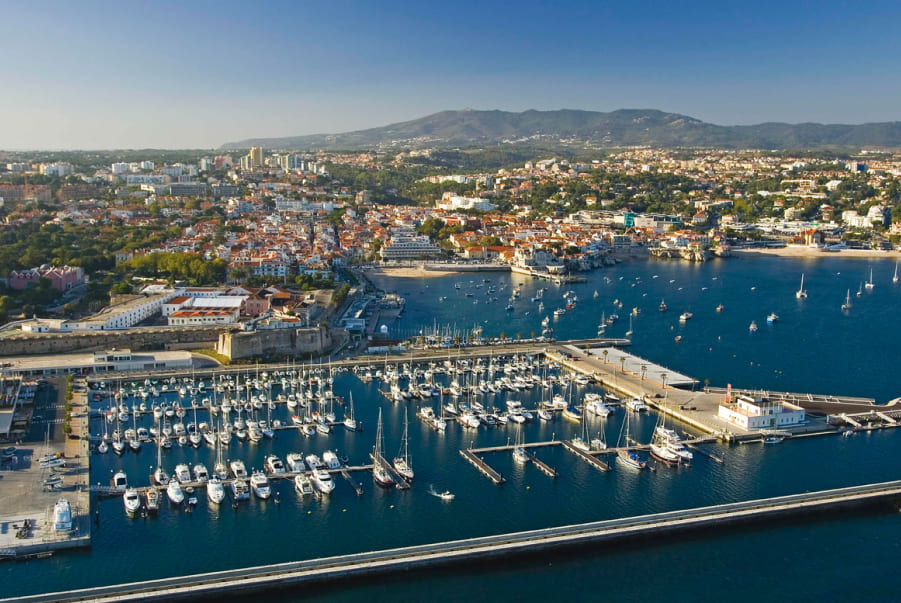Opening a Bank Account in Portugal for Non Resident (for expats)
Portuguese bank account is required for daily life payments and for applying the residence permit.
Portuguese bank account is required for daily life payments and for applying the residence permit.

Moving to Portugal is an exciting adventure, but managing finances in a new country can be a challenge. Foreigners planning to live or work in Portugal need to open a local bank account to receive a salary and easily manage day-to-day expenses.
In this guide, we will tell you everything you need to know to open a bank account in Portugal for non-residents in 2024.

A bank account in Portugal for foreigners offers many advantages. A Portuguese bank account simplifies many financial transactions, whether you want to use it for everyday expenses, buying real estate, or running a business. Moreover, a Portuguese bank account is often required to pay for utilities, government, and other local services. Opening a bank account in Portugal for non-residents can, among other things, save significant amounts on international transaction fees and provide easy access to funds.
Before you get started to open a bank account in Portugal, it is good to know a little more about the Portuguese banking system in general.
The credit rating of Portuguese banks is on the threshold of reliability, however, banks in Portugal are quite reliable and modern. Two regulators, the Bank of Portugal and the European Central Bank, provide the system reliability. To provide reliability, technical and organizational security measures, encryption of communications, as well as comprehensive surveillance and reporting systems are applied. All accounts are insured, and in the event of default, account holders can expect a refund of up to €100,000. Portuguese banks are not at risk of default, but financial analysts recommend keeping larger amounts (over €100,000) in different banks.

As of 2024, there are more than 150 local and international banks operating in Portugal, each offering a unique set of services to meet the wide range of financial needs of the local population and expatriates. An important feature of Portugal banks is that branches are open from 8:30 to 15:00 and only on weekdays.
Due to its convenience, lower fees, and innovative features, digital banking is actively developing in Portugal.
A Portuguese bank account for non-residents can be opened in both public and private banks.
The top five largest banks in Portugal are Caixa Geral de Depósitos, Banco Santander Totta, Millennium BCP, Novobanco, and Banco BPI. Banco Santander Totta has the highest credit rating among Portuguese banks.
Let's take a closer look at the banks of Portugal.

The good news is that it is quite easy to open a Portuguese bank account for non-residents. However, due to the current geopolitical situation, citizens of Ukraine and CIS countries may face some difficulties in opening an account.
When it comes to choosing a bank, it's important to compare all the available options that Portugal banks offer for expats. Consider factors such as services offered, fees, and experience with expats. This will help you find the right bank in Portugal for non-residents.
There are a few banks in Portugal that are particularly expat-friendly. Banco Santander Totta and Millennium BCP are popular for their extensive branch networks and English-speaking staff.
When comparing banks, pay attention to the types of accounts offered, their fee structure, and online banking options. Given the current geopolitical climate, Russian and CIS citizens are advised to contact banks in advance to find out their specific requirements and processes for Russian and CIS applicants.
It is also important for Russian and CIS applicants to understand that private banks may be governed by internal regulations and policies regarding Russian citizens, while state-owned banks are obliged to be guided by the country's policies and international law. In this sense, Portugal's state banks may be more thorough in vetting an applicant, but they cannot refuse "without explanation". There is only one 100% state-owned bank in Portugal - Caixa Geral de Depósitos (CGD). All other banks in Portugal are private.
In terms of assets, deposits and revenues, the rating of banks in Portugal is as follows:

Some services can be challenging to handle on your own. Trust our team of professionals to guide you through every step.
To open a bank account in Portugal, a non-resident will need to provide:

Due to international sanctions and regulations, banks may require Russian and CIS citizens to provide an expanded set of documents to ensure compliance with these regulations. For example, they may be (and most likely will be) requested to:
In our experience, a statement of the origin of funds, a detailed explanation of what funds you plan to receive into your bank account in Portugal and from where confirmation of their legality - is of paramount importance.
There are several types of bank accounts available to non-residents in Portugal:
Usually, foreigners open current and term deposits in Portuguese banks. Nevertheless, a non-resident bank account in Portugal provides an opportunity to take advantage of mortgage and consumer loans, as well as insurance services.
To take advantage of consumer or mortgage loans, non-residents need to prove their income. For non-residents, mortgages are available only for real estate on the secondary market. The mortgage rate in Portugal for 2024 is from 4% to 6%. Loan term for non-residents from 2 to 30 years. Down payment from 20 to 50%. The borrower must be over 18 years old, and at the end of the loan agreement, he must be no more than 75 years old.
For registration of consumer and car loans, it is also necessary to confirm your income. You can apply for a loan in person and online. But there is a nuance - the rates for online loans are usually higher, as well as rates for the purchase of a used car. A loan made in a branch and a loan for a new car will be cheaper. On average, the rate on consumer loans in Portugal is 11%, a car loan - is up to 10%, and interest on credit cards is in the neighborhood of 16%

1. Preparing documents: Before you go to the bank, make sure you have all the necessary documents. You will need a passport or other identification document, proof of residential address (such as a utility bill), and your NIF.
2. Visit to the bank: Go to the bank branch of your choice with your documents. Remember that banks in Portugal are open from 8:30 to 15:00.
3. Meeting with a bank representative: A bank representative will guide you through the process of applying for a Portuguese expat bank account, verifying all documents, and requesting additional documentation if necessary. You may be asked a few questions about your financial situation, source of income, and the purpose of the account.
Banking services in Portugal are affordable, but when opening a bank account in Portugal for foreigners it is important to be aware of the possible costs involved:
Once your account is open, you can easily manage it through online banking and mobile apps. Most banks in Portugal offer convenient platforms that allow you to check your balance, make transfers, and pay bills online.
1. Language barrier: Although many bank staff speak English, you may still encounter language barriers. It is helpful to learn a few basic Portuguese banking terms or bring a Portuguese-speaking companion with you.
2. Difficult banking terms: Portuguese banking terms can be confusing. Feel free to ask for clarification or use online resources to understand terms and conditions.
Many Portuguese banks allow you to open a bank account in Portugal remotely. However, for non-residents, a personal visit to the bank's office is usually required even after submitting documents online. Digital banks do not require an office visit. All checks are done online, but not all digital banks provide the Portuguese IBAN. In addition, Russians and CIS citizens need to provide a visa card to open an account with a digital bank.
If you are interested in opening a bank account in Portugal from abroad or for some reason you cannot visit a bank branch in person, you can use the services of Move to Cascais. Our specialists:
All this can be done online from anywhere in the world.
Move to Cascais has been helping people all over the world since 2020 to make relocation to Portugal easy and enjoyable. We deal with different cases on a daily basis and know all the complexities that can be encountered when opening a bank account in Portugal for a non-resident. Our experience and team of professional lawyers will make the process of opening a Portuguese bank account simple, clear, and fast.
Yes, it is possible to open an account on your own. However, you should be prepared for possible difficulties, such as language barriers, complicated banking terms, requests for additional documents, repeated visits to the bank branch, and lengthy communication with the bank (most often regarding the origin of funds).
Depending on your citizenship and country of residence, opening a bank account in Portugal for non-residents takes from a few days to a month. The opening time also depends on the bank and the completeness of your documents.
No, you need an NIF to open a bank account in Portugal. If you do not have a tax identification number yet, you can use our services to obtain an NIF.
Yes, you do not have to be a resident of Portugal to open an account. You can use the services of digital banks or Move to Cascais.
A bank account in Portugal for foreigners offers many advantages. Having an account in a Portuguese bank simplifies many financial transactions, whether it is everyday expenses, buying real estate or running a business.

Postponing a free life for later is like stealing from yourself. We do not choose where we were born, but we can choose where and how we live! That kind of freedom is great, right?
We share the stories of moving and tell you why you can and should live in a beautiful, friendly, cozy and very cheerful Portugal!
Portugal and support throughout the process of child immigration lawyer. Guarantor, registration and other necessary things to start.

Don’t miss the opportunity to start your new life in beautiful Portugal
Apply now and our team of professionals will help you with the move, paperwork and provide all the necessary information.
Portugal's D3 visa and Article 90.2 aim to attract educated professionals by requiring a higher education diploma with an apostille and a job in a Portuguese company paying at least 1.5 times the national average salary (€2,000 in 2025).
The D7 visa is tailored for individuals with a stable passive income of at least €1000 monthly after taxes and a minimum of €9120 in savings per person, facilitating a residence permit for 2 years, extendable for 3 more. After 5 years, it offers a path to permanent residency or citizenship.
Digital Nomad visa is issued to people who work remotely and get an income of more than €3480 per month. This is a long-term visa that leads to a residence permit. The Portuguese Consulate processes the visa application within 90 days.
A startup visa in Portugal (Article 89.4) is an easy way to move here with a team of colleagues, even if you just have an idea for a startup.